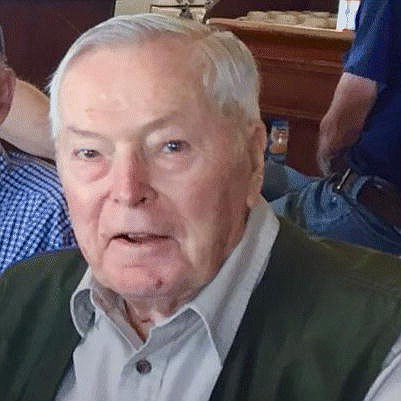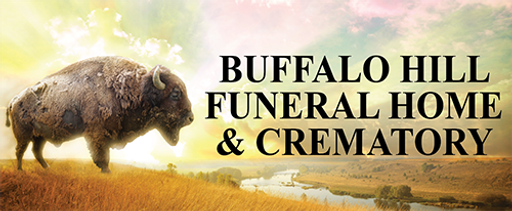
Ronald Bruce Stevens was born on March 4, 1935, in Forsyth, Montana.
He passed away at Kalispell Regional Medical Center on Oct. 14, due to COVID-19-related illness.
Ron is survived by his wife Carol, his daughter Leigh Webber (Alan) of Phoenix, his brother Reid (Marlene) of Issaquah, Washington, and his brother Keith of Shelby. He is also survived by Carol's daughters, Quinn Fitzpatrick and Shannon Kimball (John), and grandchildren Carolyn and Noah.
He was preceded in death by his son Jeffrey, his wife Ilah, and his sister Iola.
Ron was known for his everlasting positive attitude. In lieu of a traditional obituary, the family is sharing a bio below that Ron recently wrote about himself for a project that he helped facilitate.
Colonel Ronald B. Stevens, U.S. Army Retired — “My twin brother, Reid, and I were born 4 March 1935 in our family home at Forsyth, Montana, to parents of modest means. Our dad taught manual training (shop) at the Forsyth High School and our mother worked in the school lunch program. Reid and I worked every evening after school until 6 p.m. and all day on Saturdays, he at a gas station and grocery, while I worked at Marshall Wells hardware store. Sunday mornings were occupied with Sunday School and church, so our only time off was Sunday afternoons, which were typically spent in $100 used cars cruising the countryside shooting prairie dogs, jack rabbits and rocks. One Sunday when we were 16 years old, we were driving near Rosebud, and upon cresting a hill we were surprised to see about 15 soldiers shooting 60 MM mortars! We stopped, got out and approached them when a sergeant, whom we recognized as an older neighbor, walked up to us. ‘Bud,’ we said, ‘What in the world is this all about?’ He said, ‘We're with the Montana National Guard. You guys ought to come join up!’ Well, that was about the most excitement that we'd had in some time and couldn't wait to get home and tell our parents about it. A World War I veteran, Dad eagerly agreed to sign our enlistment papers, even though we were one year short of the required entry age of 17. Thus, I began my 36-year military career on 19 November 1951. As I recall, we drilled every Tuesday night in the Methodist Church basement. I was assigned as Browning automatic rifleman and became so proficient that I could field strip it blindfolded in five seconds and reassemble it in another five seconds. Those days our commander let me keep it at home under my bed so that I could practice disassembly and assembly whenever I wished. About a year after joining, that same sergeant, Bud Johnson, came to me and said, ‘Ron, you ought to think about going on active duty.’ ‘Why would I want to do that?’ I asked. ‘Well,’ Bud said, ‘You seem to really like this business and the retirement is really good.’ ‘Bud,’ I said, ‘I am only 17, I am not really thinking about retirement, but how good is it?’ He said, ‘If you stay in the Army 20 years, they will pay you 50% of your salary for rest of your life.’ I remember as if it were happening right now, responding, ‘Nobody is that dumb!’ ‘Well,’ Bud said, ‘The U.S. Army is, and if you stay 30 years, they will pay you 3/4 of your salary for the rest of your life.’ Well, that just encouraged my enthusiasm for soldiering, and although I didn't finally go on active duty until I was 20, I knew that was what I wanted to do. Due to reorganizations and moving I subsequently served as an M-141 Walker Bulldog light tank gunner and chief of section on the old 105MM self-propelled priest howitzer. In those days promotions came much faster than they do now and Reid and I were promoted each time on the same set of orders to private first class, corporal, sergeant, and sergeant first class, E6, during a four-year period. While attending my freshman year at Rocky Mountain College in Billings I met my future wife, Ilah Glee Lund, from Belt, Montana. During our courtship I told her that I wanted a career in the Army, hopefully as an officer, and that during a 30-year period, we could expect to be separated one year for every 10 years served. Understanding this, we became engaged and I went on active duty on 9 October 1955. The highest rank a National Guardsman could enter active service was sergeant E5, so I had to take a voluntary reduction from E6 to enter. I will never forget taking the ferry under the Oakland Bay bridge on the way to Fort Ord, California, for basic training. That was the biggest thing this Montana country boy had ever seen! My second eight weeks of basic training were spent in fire direction school at Camp Chaffee, Arkansas, where I applied for Officer Candidate School (OCS) and was accepted for training as a field artillery officer at Fort Sill, Oklahoma. Upon graduating 16 October 1956, I was commissioned as second lieutenant of field artillery and Ilah and I were married five days later. Our first assignment was back to Fort Ord. Ilah was highly impressed when I, dressed in my pinks and green uniform, drove through the east gate entrance and received my first salute from the MP gate guard! It is hard to believe two wonderful, formative years at Fort Ord were followed by three years at Schofield Barracks, Hawaii. There we witnessed Hawaii's statehood celebrations and formed our longest lasting, most meaningful military friendships. Subsequent career highlights include field artillery command at the battery, battalion and division artillery levels, Vietnam, Pentagon, U.S. Army exchange student to the Pakistan Command and Staff College, command of the Salt Lake City District Recruiting Command (my toughest assignment of all), graduation from the U.S. Army War College, and my final assignment as Defense Attache in Kathmandu, Nepal. Ilah was the consummate Army officer's wife, volunteering her talents at every opportunity, helping enlisted and junior wives however possible. I retired from 36 years of military service on 1 June 1987. Finding nearby expanses of public land less accessible than expected I joined Public Land Access Association Incorporated and that evening became a board member. In January 1989 I was elected president, replacing founder Gene Hawkes. I remained president until January 1992. Major accomplishments under my leadership include adjudication of prescriptive public easements over the Old Indian Trail to Cowboy Heaven east of Lake Ennis and the North Fork of Dupuyer Creek Road west of Dupuyer; and repair of the bridge over 16 Mile Creek between Clarkston and Toston that provides public access to that major fishery and surrounding country. I also actively supported the opening of Montana's School Trust Land for public recreation opportunities. On 1 May 1992 Gov. Stan Stephens appointed me co-chair of his new Montana Landowner/Sportsman Council. Reid and I enjoyed our last deer hunt a couple years ago on Rosebud Creek when we each shot nearly identical 3 by 4-point mule deer bucks (twins for the twins!). We now mostly enjoy spring prairie dog shoots near Forsyth. Over the last several years I have added nine recreational improvement projects to the East and West Rosebud Fishing Access Sites on the Yellowstone River at Forsyth, including picnic tables, benches, potty path, and a deluxe handicapped anglers fishing pier. The funds I have donated to these projects has been the funnest money I have ever spent! I lost Ilah to mesothelioma on 17 June 2009. High school girlfriend Carol McKeever lost her spouse about a year prior. We renewed our romance in February 2012 and married six months later. Carol has owned and operated LaSalle Lighting showroom in Kalispell for 41 years.”
A graveside service with full military honors will be held at a future date in Bozeman with close family.
Condolences and memories may be shared with the family at www.dahlcares.com.
Guestbook
Visits: 21
This site is protected by reCAPTCHA and the
Google Privacy Policy and Terms of Service apply.
Service map data © OpenStreetMap contributors




